Behind a Cult Classic: a Q&A with 'I Know Who Killed Me' screenwriter, Jeff Hammond
What's it like to be the mind behind the critically reviled, woefully misunderstood, completely infamous Lindsay Lohan horror film? Jeff Hammond tells me what it's like to write a cult classic.
In the 2000s, there was a string of mid to low-budget horror slashers that were often written off as “torture porn,” a coalition-of-moms-approved, catch-all term for films that were seen as nothing more than cheap gorefests. The intrinsic problem with that phrase was that a lot of insanely fun, captivating films with genuine artistic merit were often shuffled into a category created to write these films off entirely so they wouldn’t poison the minds of impressionable teens. The Saw franchise, while famously gratuitous, is ludicrously insane in the best way. House of Wax features incredible set pieces and some genuinely chilling scares—even if part of its marketing campaign revolving around getting people to see the movie because a certain culturally saturated blonde heiress met her untimely demise during its runtime. But perhaps one of the most famously reviled films that fell into this category was 2007’s I Know Who Killed Me, a film about a stigmatic twin who claims to have no relation to her other half when she’s found sans leg on the side of the road. The film starred Lindsay Lohan at her most embattled, culminating in a highly-publicized DUI arrest just three days before the film’s July 27th release.
But audiences, especially ones who love horror films, have a tendency to root out movies that deserve reconsideration. They won’t be deterred by bad reviews or cultural stigma, those things only enhance the viewing experience. And if the product at the center of it all is crazy enough, bold enough, different enough, and, often, delightfully bonkers enough, then there may be a good chance to achieve cult movie status. Since 2007, I Know Who Killed Me has taken on a new life as a favorite midnight movie, revered for its wild thematic choices and gutsy storytelling. Some find it to be a hilarious, so-bad-it's-good instant classic. Others, like me, have tried to use cultural context clues and genre patterns to inform their view of the film, its performances, and its style. Together, these perspectives have allowed I Know Who Killed Me a well-deserved second shot at greatness.
Back in April, I revisited I Know Who Killed Me for the third time and ruminated on what I felt to be its misunderstood, visionary nature in an essay for this newsletter. After the piece was published, I became increasingly interested in what it would be like to be a part of a film that was met with such an impenetrable wall of vitriol from critics and audiences alike, and reached out to the film’s screenwriter, Jeff Hammond, on Twitter to see if he might be interested in talking to me for a follow-up piece about the making of the film and the legacy it has taken on throughout the past decade-plus. Hammond and I exchanged questions and thoughts back and forth for months, and his candor during the process has made the film and its storied production even more layered with his rare, behind-the-scenes perspective and insight. We talked about what inspired I Know Who Killed Me’s plot, its critical panning, how the film’s performance impacted his life and artistry, and, of course, his thoughts on Lindsay Lohan—whose enigmatic movie star quality is on full display despite being in the midst of a turbulent tabloid takedown. Don’t forget to charge your bionic legs and make sure you take some sharp blue glass for safety because we’re about to embark on one winding, fog-shrouded cemetery path back to the horror of the mid-aughts.
Hi Jeff! I wanted to ask you a bit about the screenplay's origin before talking more directly about the film’s content itself. I'm curious as to how and when the idea for this story began to form and how long you had been fleshing it out before you began work on the screenplay. Had you always been a fan of these kinds of psychological thrillers and surrealist horrors, or was this sort of a first foray into that kind of territory?
I had written several horror scripts before, primarily because I’d always been a fan of the genre, but also because they were continuously in demand and I needed to earn a living. I set up a few around town in the late ’80s and ’90s, writing alone and with partners. (I also set up comedies, again both alone and writing with partners.) But every single project stalled in development, one after another, and by the late 90s, I still didn’t have a screen credit except for a single episode of a half-hour sitcom. I felt a lot of pressure to generate high-concept projects, which was difficult for me and not all that much fun. I decided I’d had enough of Hollywood—or perhaps more accurately, Hollywood had had enough of me.
After several years at an office job where I edited and wrote e-learning courses, I decided to try again. I wanted to write in the horror genre, because the demand was still there, and I still needed to earn a living. I had also become convinced through conversations with fellow screenwriters that perhaps the most important thing of all is to set your project apart from every other genre script that lands on a development executive’s desk—be daring, be personal, write something no one else could have written. And of equal importance: Make sure the script has a big juicy leading role to attract talent. This sounded like a lot of fun to me. I found it liberating to set aside my preconceived ideas of high-concept and saleability. So I started working on the project that would become I Know Who Killed Me.
The genesis of the story was the “twin/stigmata” idea. After school one day, when I was very young, some kids from the local high school got stuck in a stalled car on the railroad tracks. In the car were 2 high-school boys and their girl friends. There was a train coming. The car was directly in its path. The driver and two girls made it out of the car. But the boy in the backseat got trapped. It was a coupe and a tight squeeze, and somehow, he got his foot caught under the front seat. The train hit the car, with him still half in it. So this boy had an identical twin, who was elsewhere that day. But the twin felt that something was wrong, catastrophically wrong. And he became convinced, when this sense of dread didn’t pass, that his brother had died. The story that got passed around was that he felt his brother die at the exact moment of his death. I was 10 or 11 years old and I was haunted for a long time by the story.
This got me started thinking about twins who would not just psychically feel the other’s pain, but physically manifest the other’s injuries. I wanted one of them to grow up in fortunate circumstances and the other not. I wanted them to be nothing alike and to not even be aware of the other’s existence, but still have this deep psychic and physical connection. Then I wanted them to trade places in the middle of the story, so that one would be mistaken for the other. That meant separating them at birth and creating the story of how they got separated and the lies that made it happen and how those lies would have been hidden from all the people they’d have needed to stay hidden from. The story would be mostly about the horrific events that it takes to expose those lies. The affluent, "good girl" twin would be an aspiring writer, and as she expressed herself in the written word, she would, unwittingly, be telling the story that plays out in her life. Maybe that’s not exactly how IKWKM came out in the end but that’s how it started.
So I worked and worked on this script, much of the time with great excitement, and the rest of the time with my customary doubts. I knew I wasn’t writing a conventional script, but it felt like it might be the kind of thing that was vivid enough on the page to capture somebody’s attention. It took about a year to get a draft I felt satisfied with. That was around late fall 2005. I was proud of the draft. I showed it to a few friends and the response was good. The title really grabbed people's attention.
Since there's less information out there about the behind-the-scenes process with 360/TriStar, I'm also wondering how you came to work on the film with them. Was this the kind of scenario where you shopped a finished or semi-finished screenplay around to different production companies and distributors, or were you hired specifically to write this idea?
I had no agent at the time. So I reached out to a Hollywood contact who sent IKWKM to a manager he knew. This manager phoned me a few days later to report, in blunt terms, that he didn't think the script was saleable. I thought that might be the end of it. To my surprise, however, the same manager contacted me about a week later, reporting that he had sent the script to 360 Pictures, a new company that was looking for low-budget horror scripts, and they were prepared to make an offer.
Once the deal had been negotiated, I flew to L.A. to meet with the 360 team. They had their own production money and a no-strings-attached distribution with Tri-Star. I knew that I had not written a typical studio film—and I liked the prospect of not having that kind of interference. The 360 team loved the script and were interested in keeping most of what I had written. They asked me to add an FBI-procedural element to the story. I don’t remember exactly how I handled the law-enforcement investigation in the draft I sold, but for sure, I had underplayed it. I didn’t want it to compete with the surreal, delirious, nightmare-logic of what was happening in the Aubrey-Dakota story. But they felt that the story needed to be more grounded in the real world and I did my best to give them what they wanted. I continued to rewrite scenes here and there throughout the production.
After my first rewrite, I returned to L.A. to meet with 360 again. We began discussing directors and actors. I can’t remember who else was being considered, but Lindsay Lohan was at the top of the list for Aubrey/Dakota. We watched Chris Sivertson’s The Lost and we all agreed that he would be an excellent choice to direct. It all came together very quickly. Neil McDonough, Julia Ormond, and Brian Geraghty were signed for key roles. It was very exciting. As I recall, principal photography commenced in November 2006.
You mentioned that you were doing rewrites occasionally as the film was in production, did you have a sense like the notes for rewrites were twisting the story from a place you originally intended it to go? I know there were various production snags due to Lindsay's life at the time, so I'm curious as to if you felt like the requests for rewrites were aiming for more clarity in the script or if there may have been a bit of panic and production wanted things moved around and altered to fit the film's schedule.
I didn’t question the requests for rewrites. I was so excited to be having a movie made and I put a lot of trust in the producers and the director. In fact, I was pleased that they turned to me for rewrites, as we know this is not always the case. I don’t remember specific examples of what I was being asked to do. There were individual scenes that needed tweaking based on production requirements, as I recall. I was not aware that any of the rewriting was necessitated by Lindsay Lohan’s personal problems. Through the media, of course, I was hearing about her issues along with the rest of the world, but all the news I was getting from the production was positive. And I was on set for just one day.
I'm wondering how it felt for you as the screenwriter when you may have heard the news of various tabloid headlines that occurred during the film's production. For someone who had been at the game for a long time and had finally reached a point where the train was on the tracks and moving at a steady pace, I imagine it was sometimes scary to see it nearly derailed.
In retrospect, I should have been scared, I guess, (not that I could have made any difference) but at the time, I was so excited just to have a movie in production; gossipy publicity about its star did not seem like a bad thing. I thought Lindsay was a tremendous talent (still think that), and I had faith that the finished product would be successful.
I wrote in my first piece that I thought those aforementioned struggles that Lindsay was going through at the time actually became something that she deftly channeled into Aubrey and Dakota alike—both the talented young artist and the girl wrestling with demons while the world seemed to root for her failure. I'm wondering if you feel similarly?
I watched Lindsay do the bathtub scene the day I was on the set. I saw her summon the fear and the determined self-reliance that the character needs to overcome that fear. I saw her do the scene more than once. I didn’t think about where her ability came from or why she was connecting with the character. I only remember thinking that I was watching an artist at work.
I wanted to ask you about the ending—spoiler alert for a 14-year-old movie—with Dakota and Aubrey reunited after Dakota frees her sister from being buried alive. So many horror films go through several iterations of an ending before reaching the one that makes the finished cut, was this the ending you had conceived in your original script, or something that had been reworked over time? I know that there's one alternate ending on the DVD where it's revealed that the events are entirely the product of a story. I think there has been some debate about the ending's merits, but personally, I think the theatrical cut is a fantastic finale that really drives the emotion of the story home, and, again, is made even more resonant by the context of its actress' life.
I was always partial to the alternate ending on the DVD, which is how I ended the original script. But I was also happy with the ending in the final cut. Opinion was divided about my original ending prior to production, but the producers wanted to shoot it both ways just in case. I wrote the final draft with that in mind.
So, we're at IKWKM's release date on July 27, 2007. Personally, I remember there being a lot of buzz around the movie—even if a good portion was bolstered by gossip about Lindsay Lohan's arrest on July 24. But there were definitely a lot of people who were interested in going to see the film for the film itself. (I begged my parents to buy a ticket for 13-year-old me to see it, no go.)
How did you feel that day? We're you excited, anxious, somewhat indifferent? I imagine it must be a sort of queasy feeling, albeit a thrilling one, to know people are going to be heading out to see the film you've written that has been a labor of love for such a long time.
Queasy, for sure! Lindsay Lohan’s issues were front and centre in the media, and the negative critical consensus seemed to be firmly in place before the movie even opened. I had gone to Los Angeles for the cast and crew screening a few days earlier, at the AMPAS Samuel Goldwyn screening room in Beverly Hills, where the enormous screen is flanked by gold Oscars, 12-feet tall, and the red velvet curtains stay closed until the show starts. The theatre seats over a thousand and because the cast and crew came nowhere near that number, you can imagine how the energy of the room felt muted.
Lindsay was scheduled to be on Jay Leno on Wednesday before our Friday opening—an appearance that I’d been assured would give a big boost to our box office. But she had to cancel her appearance, for reasons that elevated her tabloid profile to spectacular new heights.
On opening day, I went with a small group of friends to a multiplex near my home. The theatre was nearly empty except for us. It was another dispiriting experience. All the things that you imagine happening when your movie opens—the congratulatory messages, the celebrations, the satisfaction of seeing the fruits of your labours, the validation—almost none of that happened for me, and I’m not ashamed to say that it was painful.
Over the years, of course, I’ve begun to see the experience more positively. I wrote a notorious movie that’s still being discussed and written about and loved and hated 14 years after its release.
What was your policy on reading reviews, were you trying to avoid what critics said, or were you curious as to what they might think?
I avoided reading most of the reviews; however, it was impossible not to be aware of the negative consensus. I forced myself to read the ones that mentioned me by name (linked from Google notifications). That made for a handful of ugly reads. It’s a difficult thing for a writer to be accused in print of being tone-deaf.
I imagine there came a time when you realized the film wasn't being received well by most critics and audiences. I'm wondering what that feeling was like as a writer, especially for your first major project. Was there a level of defensiveness for your art?
I had been so proud of the script, and so excited for its prospects—and not without justification. I wrote a script that was bought, made into a movie with a major star, and released by a major studio. Most people don’t realize how much of an achievement it is just to get a movie, any movie, made. Everyone involved had the best intentions to make a good, modestly budgeted thriller. But back in 2007, what the world told us instead was that we had made a piece of trashy torture porn.
I'm also curious to know if there were levels that you agreed or disagreed with when it came to critics. I've obviously written about how I love the movie, but many felt that it was unnecessarily graphic or confusingly plotted. On the other side, L.A. Weekly's Jim Ridley gave it a pretty positive writeup, saying, "Watch the mallrats' jaws drop as they pay to see the same old teen slicer-dicer, only to get this wacko hodgepodge of the Brian De Palma horror filmography and Kieslowski's The Double Life of Veronique." Once you got to see the final cut, did you have any similar criticisms that its detractors had, or did you feel that it was being unfairly maligned or misunderstood?
I love that quote! I definitely agreed with the positive reviews! Most of them have found their way to me over the years. It’s hard to be objective about the negative reviews. They made me feel bad, which is why I read so few of them. If it had been anyone besides Lindsay Lohan in the role, half of these critics probably would not have bothered to review IKWKM at all. It seemed like the world had it in for her. It was ugly. Our movie was collateral damage. I can only imagine how difficult it must have been to be Lindsay Lohan during this period. Do you think we would have won all those Razzies with any other Aubrey/Dakota but her?
The Razzies, by the way, are not voted on by industry professionals, like the Oscars, or by a society of critics, like any number of the year-end film awards we know. They are voted on by anyone, regardless of qualifications, who pays for a Golden Raspberry membership ($40 to $500). At higher membership levels, you, your friends, or perfect strangers can actually cast up to 25 votes each year.
I do think the film was unfairly maligned. I didn’t write a mainstream script. So it’s no surprise to me that it didn’t make a mainstream movie. I don’t really do mainstream. I don’t think I even know how. I wish I did because I think I would make a really good rich person. But mainstream is not the direction in which my sensibilities run. I wrote IKWKM with the best of intentions and put considerable thought and effort into it. Even its harshest critics would have to admit that IKWKM wears its badge of oddness honestly. And I think that’s part of the reason why people are still talking about it all these years later.
I want to give readers an idea of what you're up to today, of the kind and lovely human being behind a somewhat infamous film, as well as get some of your thoughts on that infamy. I think many people will be interested in that very classic, catch-all question:
“What are you up to these days?”
As you can imagine, my confidence as a writer was shaken by the reception for IKWKM. It felt to me like the most terrible fate that ever befell a movie. I internalized the criticism, and lived with it, in diminishing degrees of intensity, for a number of years after. But challenging experiences replenish our wells in mysterious ways, and through it all, I continued to write.
I have a number of projects, some of them screenplays, in various stages of completion. Most of my recent effort has gone into the writing of a stage musical, a long-cherished dream and a real labour of love. I remain very excited by this—and by all my projects. I’ve also learned over the years not to say too much about things I’m still very much inside. It breaks the spell.
What was it like traversing from what many people might think was a personal nadir to now? Have you found that what you went through getting IKWKM made and what happened after its release has taught you things that you still carry today, or is it sort of just a point of wishing those things never had to happen?
Yes, I wish it hadn’t happened. I wish the film had been a commercial and critical success, but lots of films fail—at least our failure was stratospheric! Now, all these years later, I can finally appreciate the gift that it’s been to me. Not the gift I asked for, but a pretty precious one, nonetheless.
IKWKM is, truly, only getting more popular as time goes on. It has reached Midnight Movie status and is a Halloween-season favorite for many. What has it been like to see your film take on a new life as a cult favorite through the years? Did you ever expect that?
All this felt like a pipe dream a dozen years ago, but it’s coming true! And it’s very, very cool. Throughout my movie-going life, I have been a fan of films that were perceived as artistic failures and got hammered at the box office: Foxes, Just Tell Me What You Want, Mike’s Murder, Exorcist II: The Heretic are a few that come to mind. It’s a complete delight to me that quite a number of people out there have a similar affection for IKWKM.
You told me that you think IKWKM wears its badge of oddness honestly. I love that so much, and I totally agree. It is odd, and it wouldn't be so special if it wasn't so unabashed about it! Now that IKWKM is achieving a long-awaited cult status, is there any part of you that wishes the film was being recognized beyond the merits of camp? There are so many things about this film that are genuinely great, but I feel like those who admire it for those reasons are sometimes lost in the fold between people who value it for a late-period Lindsay Lohan performance and a couple of robotic limbs. There's room for both!
I think the movie is both. Its contradictions exist on multiple levels and most of them were intentional. It has campy elements and it has serious elements. The magical elements in the story feel campy because they grew from Aubrey’s imagination. A robotic hand with superpower grip? That’s what a teenage girl would dream up. Look how she dominates Jarrod with it! She gets to be stronger than the high school football star.
There are some really great comedy bits too. I love the scene with the mother scrubbing the kitchen while the girl she believes to be her perfect, virginal daughter, fresh from a lengthy convalescence, fucks her twin’s boyfriend, expertly, to prove to him she is who she says she is—all with that hilarious song playing.
I would be remiss not to mention the skill with which Lindsay Lohan brings these two characters to life. You can feel how different they are from each other, how their lives to that point shaped their personalities, as opposite as they could be, and yet with an emotional connection so visceral that pain and injury can be literally shared. I think it’s a great performance. She is a spectacularly gifted actor. Too bad we’ve seen so little of her onscreen.
In 2021, I think there is so much more room for weirdness—both in film, television, and any visual media, really. We're also in a bit of a renaissance where there are so many different ways to get projects off the ground for writers who are more offbeat. If IKWKM continues to grow in reverence, and I think it will, is there a chance you'd ever try your hand at the machine one more time? I think the world may be ready for more Jeff Hammond.
The well has definitely not dried up. In fact, I’ve been catching myself pondering the fate that might await Aubrey and Dakota as adults.
No matter what the future holds for you, how does it feel to know that you made a film that is still being discovered and loved by a whole new generation today? This film had so much more to it than critics and audiences initially thought, and you were right to believe in it. I hope there is some sense of vindication there, because you deserve it.
The people, like you, who love IKWKM are so passionate in their defense of it that they make up for so much of what was difficult about the journey. This affection buoyed me through some dark hours. And for that, and to them, and to you, I would like to say, thank you. It has meant a lot.



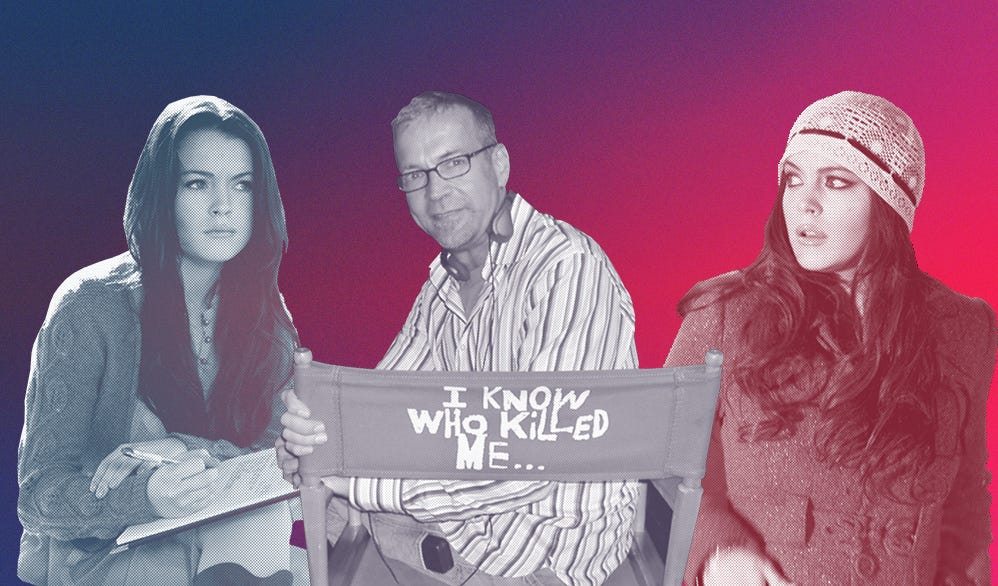

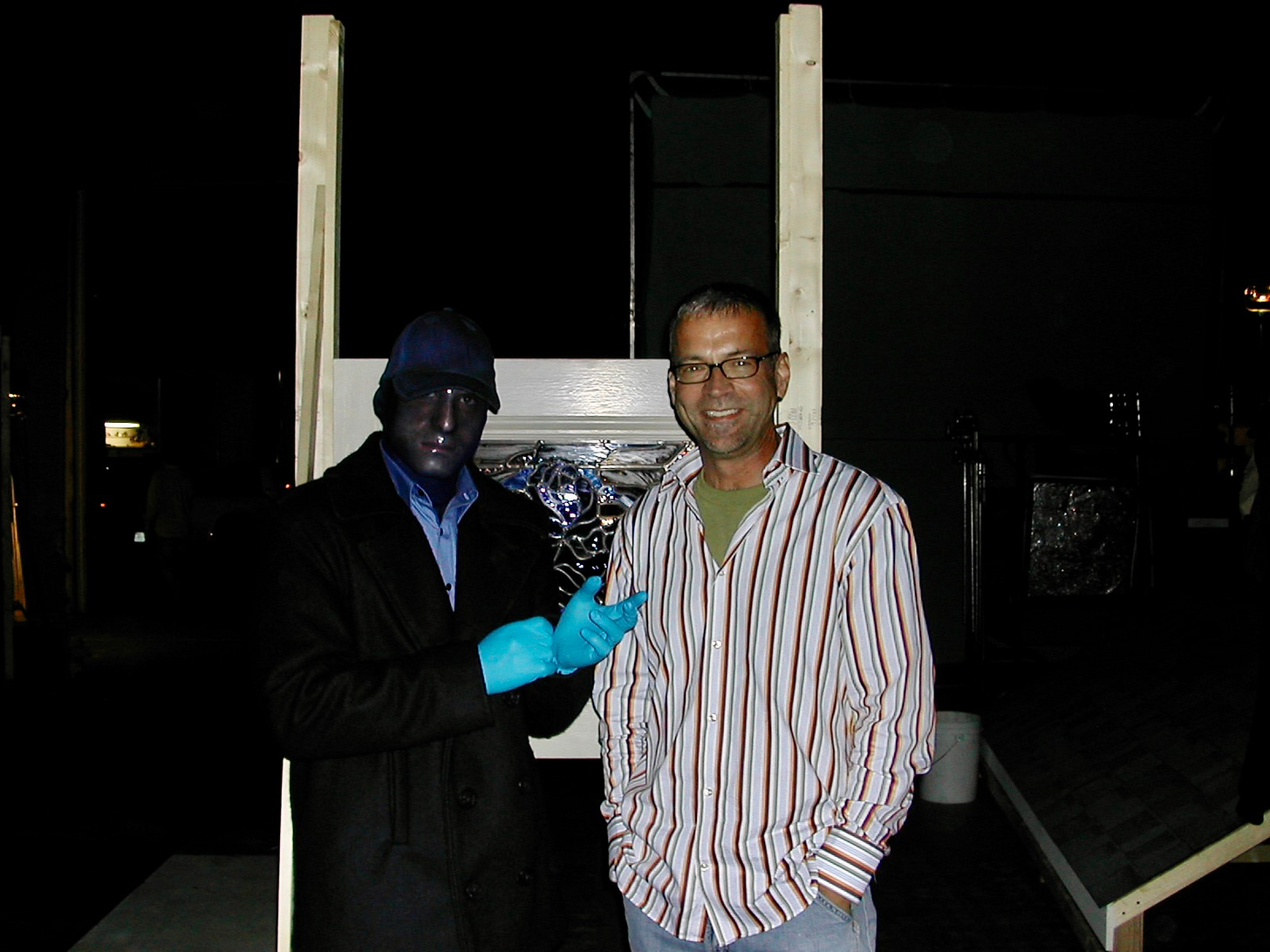
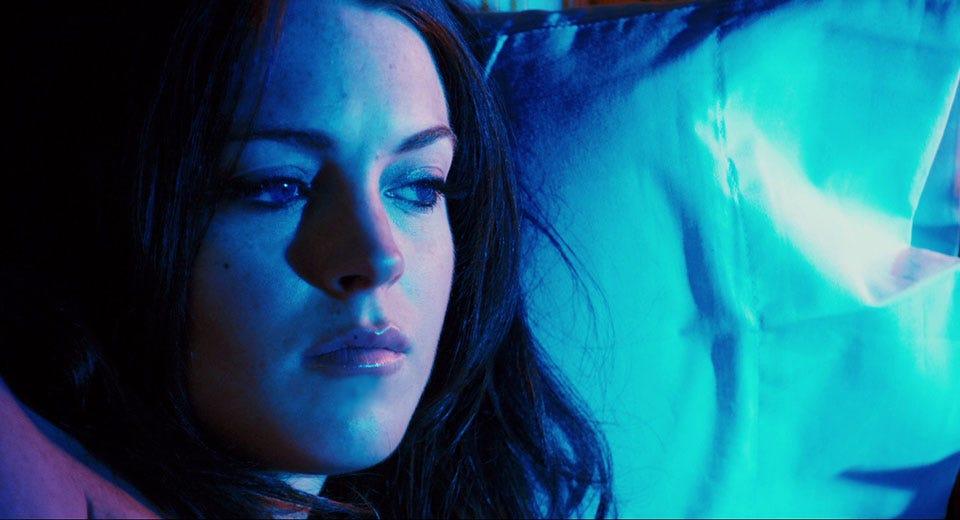

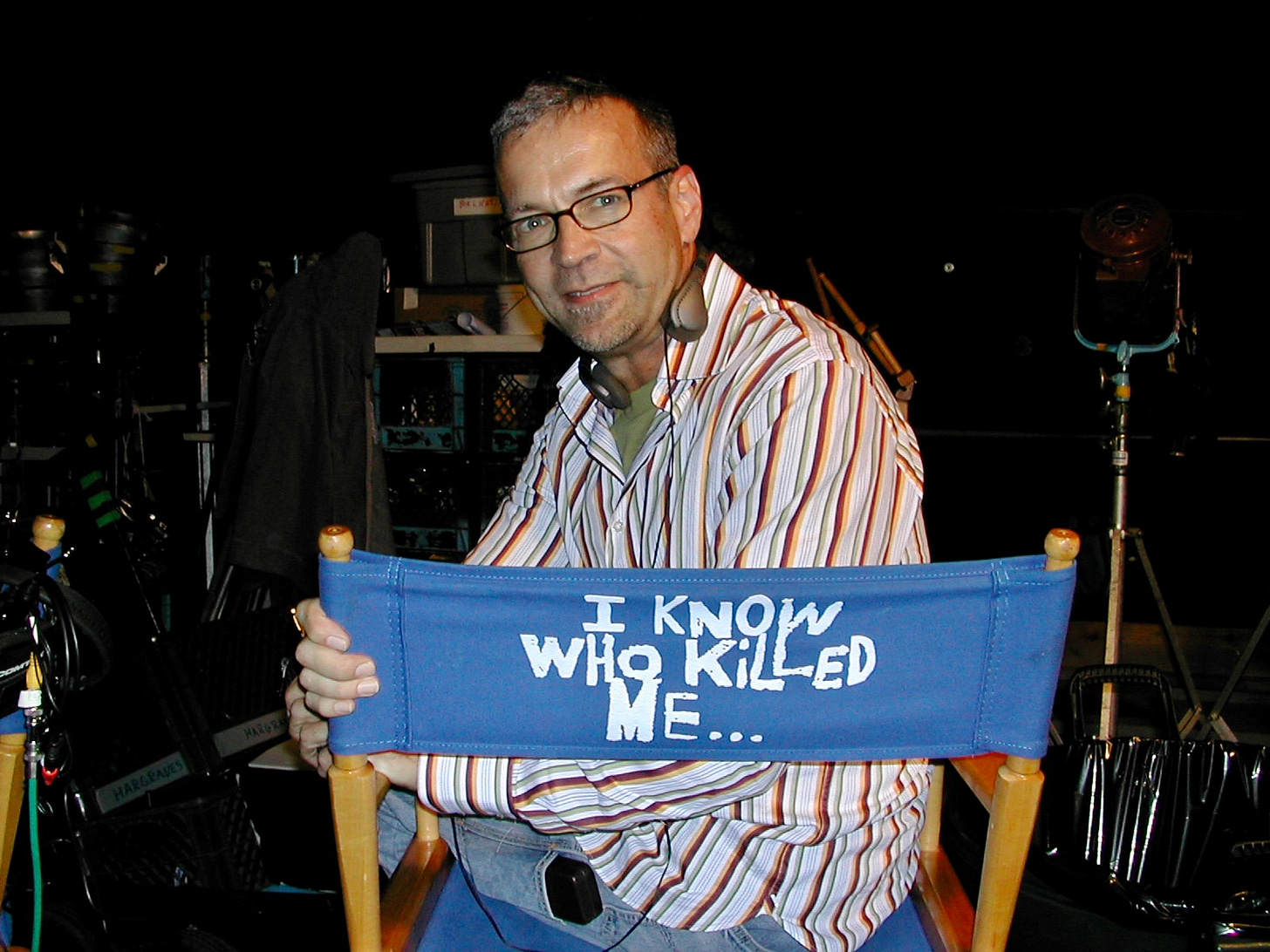


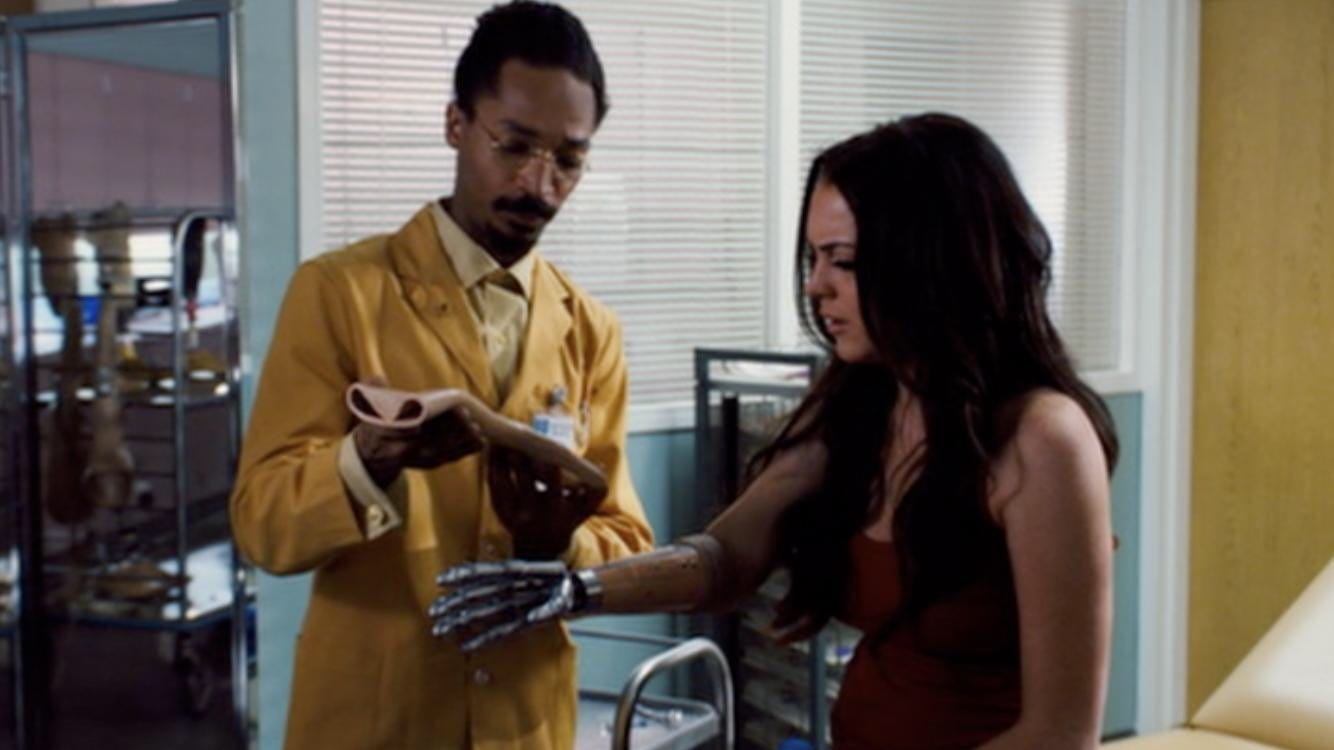
Coleman, thank you for your response to my post. I've lost track with Jeff. If there's any way you can forward my comment to him, I'd appreciate it. Great interview, by the way.
My very dear friend from long ago wrote this movie. I loved it. Still do. I am glad Jeff is still writing. He is talented and a mensch.